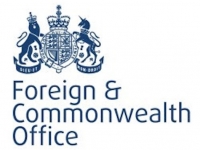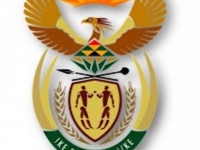Business
The inaugural Commonwealth Trade Ministers Meeting was held in London
South Africa and the UK after Brexit
UK Flag (Source: flags,net)
USPA NEWS -
The inaugural Commonwealth Trade Ministers Meeting that was held in London, United Kingdom has highlighted the importance to diversify and deepen intra-Commonwealth trade and investment. The aim of the Trade Ministers meeting was to identify areas of future trade and investment cooperation.
The inaugural Commonwealth Trade Ministers Meeting that was held in London, United Kingdom has highlighted the importance to diversify and deepen intra-Commonwealth trade and investment. The aim of the Trade Ministers meeting was to identify areas of future trade and investment cooperation among the Commonwealth countries and to set the vision for a policy agenda for such cooperation. The meeting took place against the background of discussions on the UK exit from the European Union (EU) and ahead of the Commonwealth Heads of Government Meeting which is schedule to take place next year.THE COMMOMWEALTH TRADE MINISTERS EXPLORED POTIONS TO INCREASE INTRA-COMONWEALTH TRADE
The Commonwealth Trade Ministers explored options to increase intra-Commonwealth trade and investment by harnessing the advantage of the Commonwealth of sharing common law, language and instructional structures. The Ministers emphasised the need to take into account the regional integration initiatives to which members of the Commonwealth belong as well as the special needs of small and vulnerable economies. The Ministers recalled the commitment to a rules-based, transparent, free and fair multilateral trading system, confirmed by the Commonwealth Heads of Government in Malta in 2015 and stressed the importance of a global economy that benefits all of the Commonwealth´s 2.4 billion citizens--------------
The Ministers directed the Secretariat to work with the officials responsible for trade and investment in the Commonwealth countries to develop pragmatic and practical options to increase Commonwealth trade and investment. The Ministers directed that discussions should focus on, among others:
Diversifying markets;
Developing value chains;
Trade in services;
Green economy;
Trade facilitation and logistics;
Facilitation of investment;
Non-Tariff Measures;
Support for SMEs;
Promoting access to finance;
Supporting an enabling business environment;
Exploring the scope for cooperation on the digital economy;
Supporting infrastructure development;
Sharing regulatory best practices; and
Research and development.
The meeting also agreed to regularise and institutionalise meetings of Commonwealth Ministers responsible for Trade. Ministers further considered the need to convene a meeting of Ministers to consider proposals on trade and investment cooperation amongst the Commonwealth member states for submission to the Commonwealth Heads of Government Meeting in April 2017. The Commonwealth has 52 member countries from Africa, Asia, Americas, Caribbean, Europe and the Pacific. The Commonwealth countries have a combined population of more than 2,4 billion people and a GDP of over $14 trillion. Minister Davies said that “The fact that more than a billion of the citizens of the Commonwealth are below 25 years old and a number of the Commonwealth countries are amongst the fastest growing economies in the world provides a good opportunity to grow trade among the Commonwealth countries“. On the side line of the Commonwealth Trade Ministers meeting, Minister Davies also met with Lord Price, the Minister of State for Trade Policy at the United Kingdom (UK) Department for International Trade. The meeting confirmed the commitment of both parties to ensure that there is no interruption in the trade between South Africa and the UK as result of Brexit. It was agreed that the two departments will work closely together to safeguard the continuity and strengthening of the trade relationship between South Africa and the UK. Source The Department of Trade and Industry, South Africa.
Liability for this article lies with the author, who also holds the copyright. Editorial content from USPA may be quoted on other websites as long as the quote comprises no more than 5% of the entire text, is marked as such and the source is named (via hyperlink).







